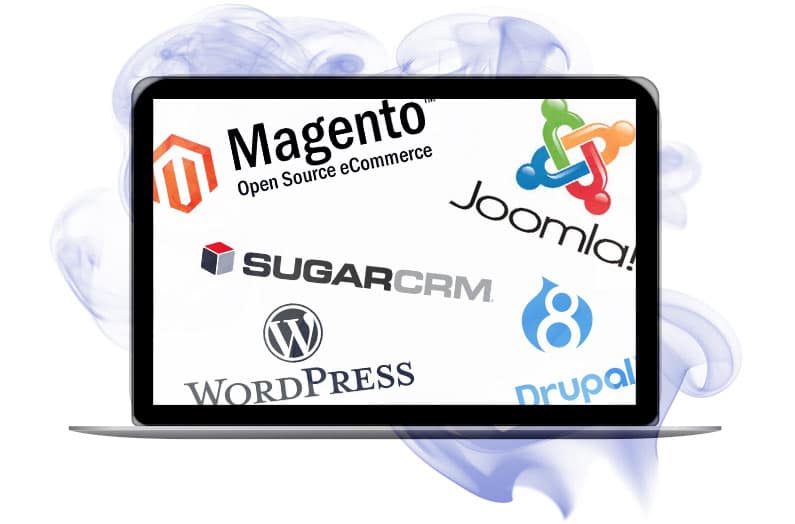Open Source software is an excellent way to create a new web presence. Typically with Open Source software you will save money, decrease time to launch, and can take advantage of a large community devoted to working with Open Source platforms. For readers who are new to Open Source and are interested in understanding what you can use it for and when it is appropriate please read on.
WordPress is probably one of the most widely used Open Source platforms on the planet. Individuals who are looking for a simple web presence to represent their business can find resources to assist with launching a fully functional website using the WordPress platform. Every day new modules and add-ons to WordPress are released and while not all are free, nearly all of them are reasonably priced. Writers wishing to launch their own blog will find WordPress to be the most cost affordable solution. Keep in mind though that WordPress was established for the purpose of blogging. While there are many add-ons that will allow you to create a fully functional site that performs functions such as eCommerce, forums, blogs, auctions, and more, WordPress is not always the best selection.
Individuals targeting the launch of an eCommerce website should evaluate the Magento platform. Magento is another Open Source software package that is designed specifically for eCommerce website launches. Out of the box functionality in terms of product management, content management, and promotions are just one of the reasons why businesses small to medium size utilize Magento. Resources that can template and customize Magento are not difficult to find due to the popularity of the platform. Within no time you can be online, plugged into a payment processor, and selling goods from your own website.
Drupal and Joomla are two of the most powerful Open Source platforms used for content websites that are more extensive than a blog. While you can use these platforms for the purpose of building a blog, the value in these platforms is their ability to categorize and aggregate content. Rich, content-filled websites can be built on these two platforms and as with most Open Source platforms there are a ton of extensions to increase the features available on the website. Working with Drupal and Joomla provides the additional value of being supported by thousands of developers around the world. Joomla has over thirty million downloads…I guess you could say it is fairly popular. When deciding on a CMS (Content Management System) it is important to understand how the CMS will scale with traffic. High-traffic websites often use Drupal due to the reputation Drupal has for high performance.
If you are looking for a solid CRM (Customer Relationship Management) package to run your startup business, simply do a search for Open Source CRM and you will find several packages that can meet your needs. Sugar CRM is one of the most popular commercial and Open Source CRM platforms in service. You can keep track of customers, leads, opportunities, projects, communication, and task assignments all through a single interface. Evaluate the features of each Open Source CRM package to determine which one is right for your business.
While I could discuss Open Source packages all day, it is important for the rising CTOs of the world to understand when the decision to go with a commercial package makes sense. The reality is once a business reaches a certain volume of sales the platform decisions become much more difficult. Difficulty is not simply a matter of whether or not an Open Source platform can serve the needs of the company from a pure technology perspective. The difficulty lies in data protection, PCI (Payment Card Industry) compliance, and often the rates your business will pay for insurance. Unfortunately with the world wide web there are malicious organizations that target businesses for the purpose of stealing confidential information. Open Source software is “open”, which means that these malicious organizations have access to the code you are using to power your website and can more easily find exploits and vulnerabilities. At the end of the day if there is a disclosure of data your company may be fined and or face litigation. Far worse your company’s reputation will be tarnished. With that in mind commercial packages may be the choice you must make to protect the business. If Microsoft or Oracle has a defect in their software you can place the blame on these commercial entities and save your reputation while avoiding fines and lawsuits.

